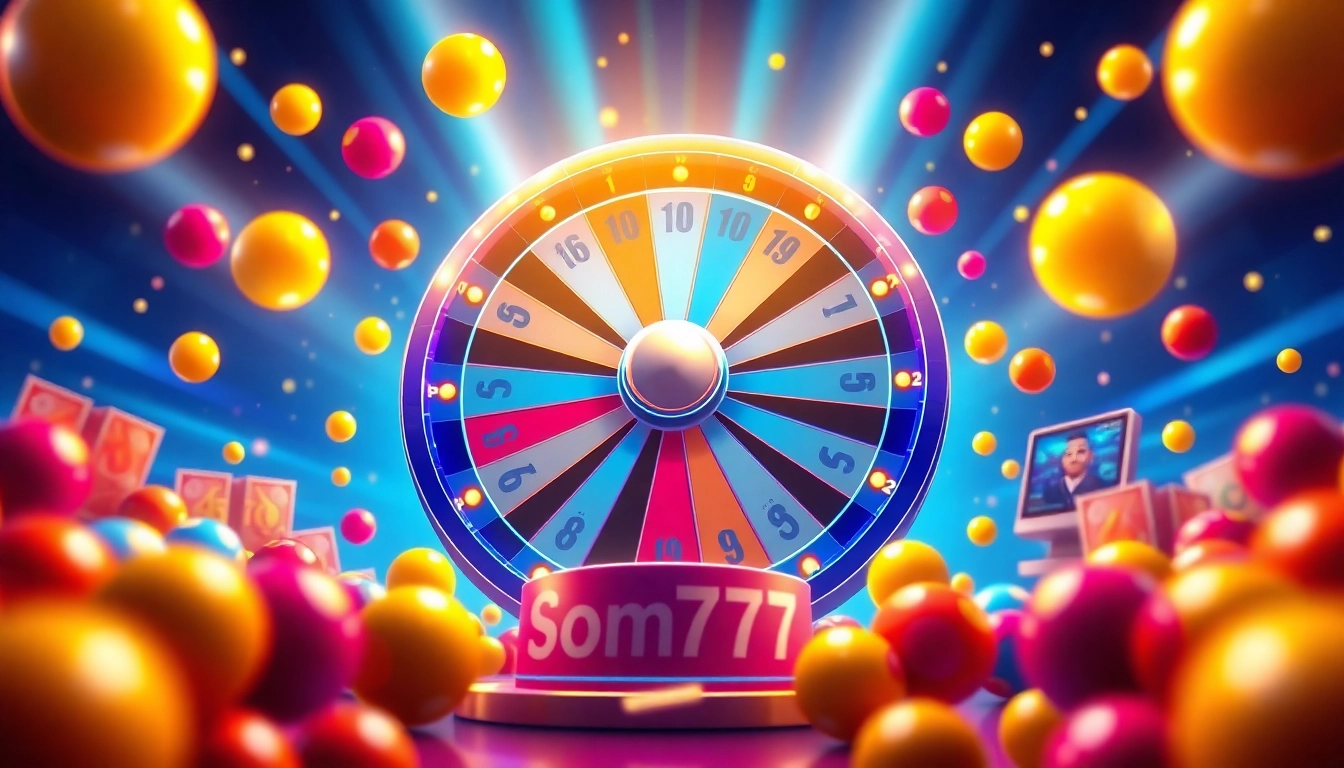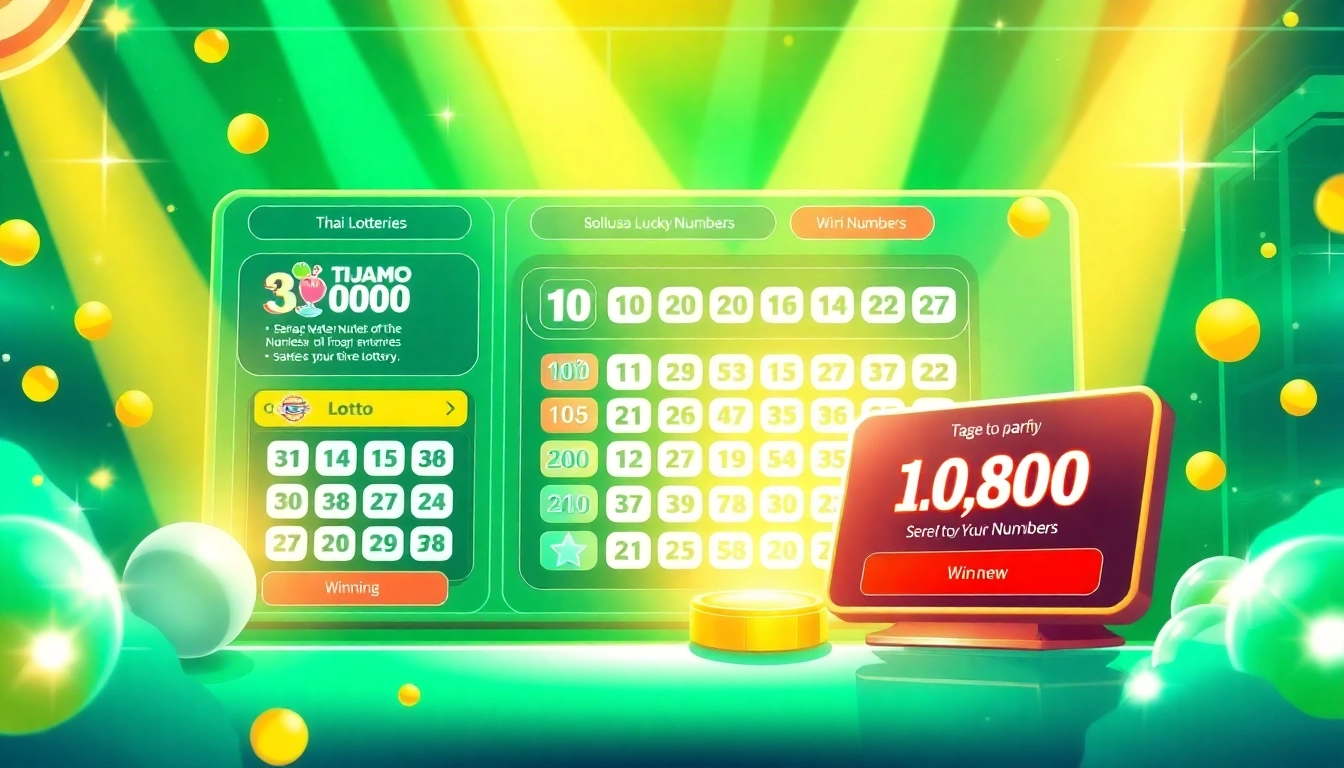Understanding Lottery Basics
What is a Lottery?
A lottery is a game of chance where participants purchase tickets for a chance to win prizes, typically funded by the sales of tickets. Winning is determined by drawing numbers, and players can win varying amounts based on how many numbers they match. Lotteries can be classified as either state-sponsored, where proceeds help fund public services, or privately operated. In the United States, lotteries are a popular form of gambling, providing significant revenue to state coffers and educational programs. For those interested in participating, learning about lottery rules, formats, and methods of play is crucial. You can find more about various types of lottery games through lottery websites.
The History of Lottery Games
The concept of lotteries dates back to ancient civilizations; the Chinese used to have a lottery-like game known as Keno as far back as 205 BC. The Roman Empire also had lotteries as a form of entertainment. In the modern era, lotteries became formalized in the 16th century in Europe, where governments used them to raise funds for public projects. The first recorded lottery in the United States occurred in 1612 in Virginia, aimed at raising money for the colony. Over the years, lotteries evolved into various formats, including scratch-off games, draw games, and multi-state lotteries like Powerball and Mega Millions.
Types of Lottery: Explore Your Options
Understanding the different types of lotteries available can enable players to make better choices about how to participate. The major types include:
- Traditional Draw Games: These involve picking numbers and waiting for a drawing. Popular examples are Powerball and Mega Millions.
- Instant Win Scratch-Off Games: Players scratch off a ticket surface to reveal symbols or numbers that determine outcomes immediately, often with smaller prizes.
- Raffles: These lotteries involve purchasing tickets for a chance to win a specified prize, usually involving fewer but higher-value prizes.
- Multi-State Lotteries: These combine ticket sales from multiple states to create larger jackpots, enhancing player excitement and potential wins.
How to Choose the Right Lottery
Analyzing Lottery Odds: What You Need to Know
When choosing a lottery to play, understanding the odds is essential. Odds represent the likelihood of winning a specific prize, and they can vary widely between different games. For instance, the odds of winning the Powerball jackpot are approximately 1 in 292 million, while certain scratch-offs may have odds as favorable as 1 in 3. It’s equally important to consider the size of the prize relative to the odds; a game with longer odds might offer a significantly larger jackpot.
Lottery Games with the Best Chances of Winning
Various lottery games provide different chances of winning. Some games such as smaller state lotteries tend to have higher odds of winning than larger, multi-state lotteries. Additionally, scratch-off games often provide better odds for small prizes. For instance, the Health Lottery in the UK is known for having better odds compared to big national draws like the EuroMillions.
Biggest Lottery Jackpots: A Historical Perspective
The allure of winning a life-changing jackpot drives many players to participate in lotteries. The Mega Millions and Powerball jackpots have reached historic levels in recent years. The largest Powerball jackpot ever recorded was $1.586 billion in January 2016, split among three winning tickets, while the largest Mega Millions jackpot hit $1.537 billion in October 2018. These monumental prizes illustrate not only the potential for significant financial gain but also the massive public interest generated by these games.
Winning Strategies for Lottery Players
Managing Your Lottery Budget
Playing the lottery should remain an enjoyable pastime rather than a financial burden. Establishing a specific budget for lottery purchases is vital. Experts recommend deciding how much money you can afford to lose, then sticking to that limit. Setting a budget can prevent impulsive purchasing and ensure you approach lottery games with a clear mindset. Fun should be the primary driver, rather than the expectation of making money.
Choosing Numbers: Strategies and Superstitions
Players often debate over strategies for choosing numbers, which can range from personal significance (birthdays, anniversaries) to mathematical methods (such as frequency analysis). While some believe in lucky numbers or patterns, others rely on random selection. However, statistically, each number has an equal chance of being drawn regardless of past frequency. Therefore, focusing on playing numbers that appeal personally can enrich the overall experience.
Joining Lottery Pools: Pros and Cons
Lottery pools can amplify your chances of winning as they allow players to share the costs and thus buy more tickets. When participating in a pool, however, it is essential to have a clear agreement on how any winnings will be distributed. The primary benefits include enhanced winning odds and a more social experience, but potential drawbacks are disputes over payouts and misunderstandings if agreements are not clear.
Common Myths About Lotteries
Debunking Lottery Myths: What’s True?
Many misconceptions surround lotteries. One popular myth is that certain numbers are “due” to win. In reality, each draw is independent, meaning past outcomes do not impact future drawings. Another common belief is that some tickets are more likely to win based on the retailer’s sales; however, this is not true as every ticket has an equal chance regardless of where it’s purchased.
Misunderstandings About Winning Chances
Many players do not fully understand the calculations behind their odds of winning. For example, people may assume they have a better chance of winning by playing multiple games, but this can lead to diminished returns on investment due to overspending. Clarity on this can help players make warranted decisions regarding how and when to play.
The Role of Luck vs. Strategy in Lottery Success
Despite the strategies employed by many players, the lottery is fundamentally a game of chance. There are no guaranteed winning strategies, and while understanding odds and games can enhance enjoyment, an acknowledgment of luck’s dominant role is essential. Emphasizing responsible and moderate interaction with lottery plays can enhance the experience without the pressure often associated with gambling.
Staying Responsible While Playing the Lottery
Recognizing Signs of Gambling Addiction
While lottery games can be fun and thrilling, it’s critical for players to be aware of the signs of gambling addiction. This can include spending excessive time and money on games, neglecting responsibilities, and feeling distressed or anxious when not playing. Seeking help through support groups or counseling can provide necessary guidance for those who identify such patterns in their behavior.
Setting Limits: How to Play Responsibly
Implementing self-imposed limits on how much time and money is spent on lotteries can significantly enhance one’s gaming experience. Tools such as “play timers” or budgeting apps can prompt players to stick to their limits. This responsible approach fosters a healthier relationship with gaming while still allowing enjoyment of the thrill that comes from playing the lottery.
The Importance of Community Support in Gambling
Community support plays a significant role in responsible gambling. Participating in local awareness programs or discussions can bolster understanding about safe gaming practices. Additionally, being part of a supportive community can provide the encouragement needed to stick to personal gaming limits, ensuring that players engage with lotteries as a form of entertainment rather than a potential financial risk.















Leave a Reply